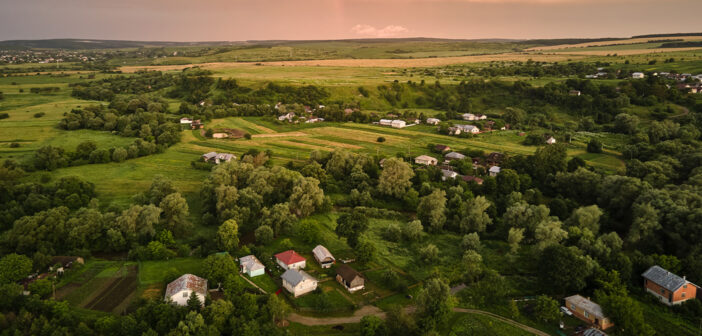When you’re considering a move, determining where you’d like to be isn’t always as easy as it seems. In our local area, we are fortunate to have so many options. Whether it is lake life, downtown living, suburban family life, or the highly-coveted natural setting on a large private rural parcel, there is something for everyone.
One of the most important things to consider is exactly how you want to live. Do you want to walk to work? Do you have a maximum time that you would allow for a commute? Are you looking to be in a specific school district? Maybe you’d like a little piece of the relaxed luxury of up-north living every day. If the quiet life is what your heart is calling for, a large private parcel may be exactly what you need. Although some of these properties can be found nestled closely to urban life, the majority of these serene, wooded parcels are found in more rural areas.
Many of the benefits of urban communities are fairly clear; access to a larger variety of shopping and services, access to many job opportunities, greater diversity and variety of community activities. If the busy city life isn’t for you, there are many aspects of rural living that may be more appealing. If you are considering buying a new home, enjoy time outside, quiet settings, love riding horses or dirt bikes and long for more space for children and dogs to run … maybe rural living is for you!
In terms of buying rural property, there are several benefits and favorable qualities that you may not find with urban and suburban real estate. Some of the potential advantages include:
Lower cost: Homes in rural areas tend to be more affordable compared to urban or suburban areas. This means that you may be able to get a larger home and/or more acreage for your dollar. Property taxes are typically less in these areas, as well.
Larger lots & outdoor space: Not only do rural properties often come with larger lots, the neighboring lots typically share that same quality, creating a spacious feel surrounding your home. The greater volume of outdoor space allows for gardening, ornamental landscaping and on larger parcels, many opportunities for recreational activities. Larger lots can also be particularly appealing if you enjoy a more private and stress-free lifestyle.

Peace & quiet: Rural areas typically offer a serene and tranquil environment, less traffic and less restriction for building and zoning the further you move away from the hustle and bustle of urban life. If you prefer peace and quiet, rural living can provide a more relaxed atmosphere with less noise and light pollution.
Natural surroundings & scenic beauty: Rural areas often boast picturesque landscapes with plenty of greenery, open fields, mountains or bodies of water. Living in rural spaces can be visually appealing and offer opportunities for outdoor activities like hiking, fishing or wildlife observation.
Lower crime rates: We are fortunate, in many of our local areas, that the crime rates are extremely low compared to national averages. Even with that in mind, rural areas do often have even lower crime rates compared to suburban areas and urban centers. This can provide a greater sense of safety and security for homeowners.
Community & neighborly bonds: Rural communities tend to have a strong sense of community and neighborly support. In rural areas, it is not uncommon to find a closer-knit social network where people look out for each other and participate in local events or gatherings.
Animals & Farming: Rural areas may offer more opportunities for self-sufficiency, such as the ability to have a sizable garden, raising chickens, cows and goats or a barn and pasture for horses. This can contribute to a more sustainable and independent lifestyle which can help to compensate for less access to amenities like restaurants and grocery stores.

Investment potential: While rural properties may appreciate more slowly than urban areas, they can still be a good investment opportunity. As we’ve seen in many of our local cities in the past few years, the supply has not met the demand for the growth in population. As the suburban areas grow and pricing rises, many first-time homebuyers are priced out and look for homes in surrounding communities, which in turn creates greater demand and increased pricing for rural properties.
When considering buying in different areas, always consult with a professional Realtor to help guide you. Realtors can provide you with information on millage differences, suggest different loan types to consider that are available for more rural spaces that are not available in the city, and vice versa. Zoning information and future land use plans are also helpful when deciding where to relocate. Whatever the case, an experienced Realtor will meet you where you are and help you get to where you would like to be.
Happy house hunting!








